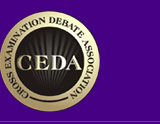Abstract
Two decades ago, the Louisville Project intervened in competitive intercollegiate policy debate by challenging traditional research paradigms that limited “meaningful black participation” in the activity. From their perspective, traditional norms guiding both the content and form of debate were demonstrative of an elite white male space that was inaccessible to black college students. Since the 2005 special issue of CAD, debate has continued to become increasingly split between traditional debate and critical/performance debate. One of the primary questions raised by traditional debaters is, how can debates in which both the affirmative and negative refuse to affirm a hypothetical interpretation of the resolution produce clash, switch-side debating skills and an equitable division of ground? This article seeks to further intervene in this conversation by arguing that “Revolutionary vs. Revolutionary” debates – in which both the affirmative and negative teams present non-traditional strategies – do not diminish these aspects but instead present an alternative framework for engagement and clash that can push debate to better address structural violence.
Recommended Citation
Athanasopoulos, Charles and Sugino, Corinne Mitsuye
(2023)
"Clash of the Uncivilized: An Alternative Approach to Policy Debate,"
Contemporary Argumentation and Debate: Vol. 38, Article 7.
Available at:
https://commons.lib.jmu.edu/cad/vol38/iss1/7



